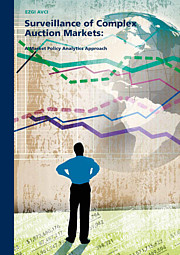Surveillance of Complex Auction Markets: A Market Policy Analytics Approach Defended on Friday, 25 May 2018
The dissertation consists of four essays that investigates the merits of big data-driven decision-making in the surveillance of complex auction markets. In the first essay, Avci and her co-researchers examine the aggregate-level bidding strategies and market efficiency in a multi-time tariff setting by using parametric and semi parametric methods. In the second essay, they address three key forecasting challenges; risk of selection of an inadequate forecasting method and transparency level of the market and market-specific multi-seasonality factors in a semi-transparent auction market. In the third essay, they demonstrate the effect of information feedback mechanisms on bidders’ price expectations in complex auction markets with the existence of forward contracts. They develop a research model that empirically tests the impact of bidders’ attitudes on their price expectation through their trading behavior and tested their hypotheses on real ex-ante forecasts, evaluated ex-post. In the fourth essay, they investigate characterization of bidding strategies in an oligopolistic multi-unit auction and then examine the interactions between different strategies and auction design parameters. This dissertation offers important implications to theory and practice of surveillance of complex auction markets. From the theoretical perspective, this is, to our best knowledge, the first research that systematically examines the interplay of different informational and strategic factors in oligopolistic multi-unit auction markets. From the policy perspective, Avci’s research shows that integration of big data analytics and domain-specific knowledge improves decision-making in surveillance of complex auction markets.
Keywords
Market Microstructure, Online Auctions, Big Data Analytics, Time Series Analysis and Forecasting, Decision Support Systems, Behavioral Finance
















